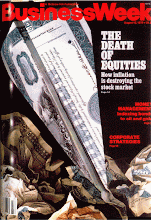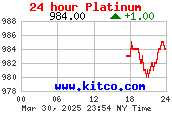陳大為
前天在電台和跟上海友人中聽到,內地的公務員、國企和一些被鼓勵的外企帶頭增加屬下員工的薪金15至25%不等,有個別公司甚至達到30%之譜。
不錯,不少內地公司,無論出口還是內需,2009年下半年比上半年的營業額都改善了不少,但是別忘了和2008年相比,生意額都大跌五、六成。
所以,就算回升50%,和2008年相比仍然是下跌了25%。偏偏在生意尚未完全恢復正常之際,人工上升了15至25%。再者,對企業來說,再加上「四金」,就等於勞工成本上升了22.5至37.5%。
滬中小企經營困難
當然,對於公務員和國企來說,這是可以承受的。對於被鼓勵的外企來說,則相信在國家或地區政府的一些項目的爭取上會有更高得分。但是,其餘的民企和外企則將會在沒有政策的照顧下,面對原料和人工上升,甚至請不到足夠工人的問題。
按道理,人工加了,市面消費應該會旺盛。某程度上,的確如此。以上海來說,單是筆者居住的區域,最近已經有三個新的購物中心開業。儘管都不在交通最方便的位置,周末時仍然很多人在那裏購物。更不用說那些一向都旺盛的購物廣場,更是車水馬龍。
不過,與此同時,有兩點值得留意。
第一、 在這些商場的零售店,除電器舖外,多數是外資或者最起碼是中外合資品牌,賣的也主要不是國產品牌。
第二、當這些大型購物中心開始增多的同時,一些原本聚集獨立小商店和小餐廳的地段,如巨鹿路、北京西路、新閘路等等則受影響而關門。更重要的是,大型購物商場內的都是大路的連鎖品牌,而這些小商店則更多是個人或者家庭小本經營。
換句話說,在「谷內需」加薪和用政府政策扶持特定的行業和企業下,不受政府「祝福」的中小企,生意經營更為困難,令經營中的生意關門外出打工或者乾脆失業,同時又令受祝福的在缺乏競爭下,引致產品質量和服務質素下降。
更要命的是,當中小企經營困難,國企和外企則資金成本低,兼審批容易下,資金湧向資本市場,抬高股票和樓價,令到市民甚至中小企業主寧可炒樓、炒股都不願意創業,扼殺了最活躍經濟的小企業的生存和壯大機會。
專注炒股 不理生意
現在中國市民對股市的熱情仍然高漲:當筆者路過平常逛逛的一些小商店(文具店、影碟店、小藥房甚至小服裝店)時,發現店主(有些連店員)都聚精會神看股票報價機,「眼定定」看著陰陽燭和RSI,用上海話嘀嘀咕咕的商量到底股市和後市如何,甚至不理熟客,專注炒股。對於投資老手來說,這意味什麼是不言而喻的。
另外,筆者也發現在上海內環和北京的金融街至三環那些和商場一起的新建辦公樓 ,就算下面的商場再大、再美、再旺場,辦公樓的「水牌」 顯示有些層數(整層)是空租的。
有些辦公樓甚至是「絕對空虛」,這種苦況英文《中國日報》亦曾報道。至於業主,物管和銀行在「蝕到空虛」的情況下,如何生存就真是「木宰羊」。
不過,可以肯定的是,無論國內外的投資和生意,肯定不如一些政府部門和地產發展商般「繁盛」。





11 則留言:
Very true!
What's 「四金」?
Just a summary of the up-pushing forces and down-pushing forces for PRC property markets
The price up-pushing forces for the PRC property markets
a) KPI of Provincial Governors
- The performance of provincial governors are highly linked to the local provincial GDP growth, in which the most direct way to boost up the GDP under 2008 Financial Tsunami is to build real properties, such as railways, roads, and residential and commercial buildings. It pulls up the local demand of construction industry and accompanying industries like raw materials production/manufacturing. Therefore, the provincial capitals obtained from the state-owned banks like BOC and CCB is largely pooled into the provincial constructions. Under such huge construction demands, all the properties pricing are pulled up materially.
b) Central Government Financing Demands
- The Central Government had announced the RMB4,000 billions fiscal expansionary policy to boost the PRC economic growth to achieve the target 8% GDP growth in 2009. Half of the financing of the RMB4,000 billions are made by Central Government, while the provincial government needs to finance rest of the demand. Therefore, the most useful tools for the provinces to finance such large sum of money are by means of selling lands and buildings. The higher price the province sold, the faster the province hit the targets. Hence, the provinces are using various tools to push the real estate market up.
c) Investment / Speculation Demands
- Owing to the few investment channels available for the PRC investors, most of their capital is either invested in stocks or real properties. The investment demands are more than the real residential demand.
- Owing to the low mortgage rates
d) Anticipated rising trend
- Formation of the properties market trends direct investors the thinking of up ward price increments of properties.
The price down-pushing forces for the PRC property markets
a) Monetary Policy
- Increase bank required reserve ratio, market operations, and discount window to reduce the money supply (i.e. mainly measured by M2)
- increase the credit policies of state owned banks for lending mortgage loans to buyers
b) Transaction Costs
- Increase the capital gain tax, stamp duties on land and properties transactions
c) Holding Costs
- Increase the annual properties market tax based on market value of the properties, which increase the cost of carry
d) Administration Barriers
- Restrict/Increase barrier for investors to buy second or more properties
- Increase the governmental administration time for transactions
- Only local provincial citizens can register for S&P of real properties located in that province.
- Restrict the holding period of land and buildings between sale and completion and increase such cost of carry
d) Properties Supply
- Increase scale and speed of building of the residential properties constructed by provincial government
e) Regulations
- Increase the fines and penalties of regulatory violations
- Regulation of the State Owned Enterprises to involve in property markets investments
「四金」是指:
養老保險金、
醫療保險金、
失業保險金、
住房公積金。
Half of the financing of the RMB4,000 billions are made by Central Government, while the provincial government needs to finance rest of the demand.
->The central government contributes a quarter of the 4 trillion only!
->China's budget deficit is expected to reach 1 trillion yuan this year!
->FYI:
[Beijing is unlikely to acknowledge the debts as its own. That means future defaults could be left for banks to mop up. UBS expects 2009’s credit expansion to create up to 3 trillion yuan ($439 billion) of non-performing loans over the next few years, mainly because of lending to local governments.
That 3 trillion yuan is equal to 10 times the 2008 earnings of the three largest listed banks and would be enough to bring the non-performing loan ratio in the banking system up from less than 2 percent to 9 percent, based on current asset levels.]
Love to read you guys' articles!
Is it really happened?:
c) Holding Costs
- Increase the annual properties market tax based on market value of the properties, which increase the cost of carry
"the non-performing loan ratio in the banking system up from less than 2 percent to 9 percent, based on current asset levels."
!!!!!
The US FedReserve is going to make repo with banks which is an indication of launch of contractory monetary policy.
No central banks want to make contractory monetary policy through increase of interest rates, as they fear of formation of asset bubbles.
The reason is that as most of the countries are now having very low interest rates for deposits or savings, if anyone of the pretty economic healthy country announce the increase of interest rates, then speculators shall use carry trade to short JPY or any other low cost of carry currency, and long that higher interest rate currency. Once the capital flows into that country, the cash will flow into stocks and real estate, and once this happens, the asset price of that country will rise, and once it rise, and the central bank is not able or willing to cap the rise, then the currency rise anticipation will form, which leads further inflow of international capital until the asset bubbles burst.
So PRC Central Bank only increase the bank required reserve ratio, and tightening the credit policy of state owned banks, instead of increase of deposits rates. while US Fed Reserve only do the repo instead of increase the target Fed Fund Rate.
Is it really happened?:
c) Holding Costs
- Increase the annual properties market tax based on market value of the properties, which increase the cost of carry
->No!
Once the capital flows into that country, the cash will flow into stocks and real estate
->it may or may not be true, depending on many other factors!
->don't you think that it would be the case if the country is the US?
Is it really happened?:
c) Holding Costs
- Increase the annual properties market tax based on market value of the properties, which increase the cost of carry
->No!
Right, it is just proposed by some government officials, and not yet formally establish it. It is just like Property Tax charged by HK government periodically.
聰聰 提到...
Once the capital flows into that country, the cash will flow into stocks and real estate
->it may or may not be true, depending on many other factors!
->don't you think that it would be the case if the country is the US?
Yes. It depends number of factors such as follows:
a) If the country is relatively politically and economically stable;
b) If the country has good /underprice stocks & real properties;
c) If the country has few other available investment opportunities other htan the stocks and real properties;
d) If the country's stocks and real properties markets are relatively liquid;
Overall, the cash flows to assets which is liquid (for withdrawal plan once anything goes wrong in that country), less overpriced/under priced, and with lucrative projected income.
Stocks and Real Properties may be selected under such criteria.
我有些朋友在國內工作或讀書, 他們眼見國內大學亂加學額的結果令每年大學產出的大學生多達650萬之眾(真是超英趕美)的惡果,在一個作為世界工厰,以加工業和出口為經濟發展主業的國家來說,這樣只會導致大學生一文不值,更令人憂慮的是畢業生的人數已經成為結構性的問題,不是一下子就可以減產的了..
Anthony Ng "大學生再不是天之驕子,濟南391名大學畢業生爭聘5個掏糞工職位。央視當紅主持人朱軍認為大學生掏糞犀利,因為無論是在思維還是掏糞工具的使用上,大學生都將使中國擺脫傳統意義上的掏糞。朱大主持人少說些皇家電視台之類昏話,那才真正犀利;要不就是自己去當一回掏糞工,學習一下新聞史上陶糞工人的角色。"
附文
[热点追踪] 391名大学生争聘掏粪工职位
女大学生张婷一丝不苟地做着掏粪工作。3月2日,几名大学生掏粪工在济南老街巷清挖粪水。当日,济南市城肥清运管理二处招聘的5名大学生掏粪工,经过半年的试用期正式签订聘用合同,成为城肥清运队伍中的新成员。
3月2日,几名大学生掏粪工在济南老街巷清挖粪水。当日,济南市城肥清运管理二处招聘的5名大学生掏粪工,经过半年的试用期正式签订聘用合同,成为城肥清运队伍中的新成员。这5名大学生掏粪工是从391名应聘大学生中,经过严格考核脱颖而出的。
3月2日上午,几名大学生掏粪工在济南老街巷清挖粪水。当日,济南市城肥清运管理二处招聘的5名大学生掏粪工,经过半年的试用期正式签订聘用合同,成为城肥清运队伍中的新成员。这5名大学生掏粪工是从391名应聘大学生中,经过严格考核挑选的。
这5名大学生都在23-26岁之间,4名是本科学历。3男2女。大学生在淘粪工岗位上要干多少年?未来的道路有没有规划?对此,5名大学生都表示,现在只想干好眼前的活儿,至于以后怎么发展还真没有考虑过。
5名大学生签订的《山东省事业单位聘用合同》规定,济南市城肥清运管理二处聘请5名大学生从事“粪便净化处理工作”,期限为5年。
济南市城肥清运管理二处负责人表示,签订合同,意味着这5名大学生已经成为城肥二处的正式职工,按照合同5年之内不准变动工作,但是这并不意味着这5名大学生5年之内必须要做淘粪工。
尽管今天的齐鲁晚报电子版刊登此文时,添加了“其实只要这些人干的好,可以干管理的......”但是依然让人欣慰不起来,仔细琢磨,有以下几点:
一是中国教育还有很多杯具专业在上演。前天晚上,美国专门研究大学生就业的一位华人博士来中国创业,对中央电视台权威媒体披露,中国很多大学的教育专业设置出现了大问题。竟然出现农业大学培养新闻专业学生、体育专业学生,孩子们到社会上,连新闻专业的同行们都说不知道这个学校还能培养出同行竞争者。几年来连续出现法学、国际贸易等8个专业找不到工作。四年的本科国际贸易,不如一个培训中心两个月的3G培训班出来的学生好找工作。这是中国教育的耻辱。这些大学赚了家长辛辛苦苦的几万块钱,培养出找不到工作的学生,耽误了一批人,不能不说是中国教育的一大杯具。
二是无奈的作秀。都说社会是个大染缸,几年后锋芒棱角总会圆滑顺溜。但是看到大学生当掏粪工,怎么看都不是滋味。仔细一想,嘿,有其道理之处。无奈的选择。大学生总得要吃饭吧。很多靠贷款上学的学生总不能毕业了还不如初中毕业生好久也吧。于是乎,翻看中国历届新闻人物,发现过去有人靠杀猪卖肉成为亮点,仔细盘点唯有掏粪有效应,无奈身先士卒,断臂上谏,让掏粪工的角色效应引起中国教育界的关注。实乃无奈之举。试想,四年本科培养出掏粪工,实乃是中国教育界的一大“亮”点。如哪天母校召集班级聚会,酒桌上,那些教授们肯定是推杯换盏,连夸掏粪工学生与时俱进、勇于创新!
三是掏粪大学生折射出贫困家庭孩子悲凉的就业环境。稍微用心观察一下,发现掏粪工的岗位竞争还很激烈,据说是400多人竞争几个岗位。这些大学生的家庭背景肯定是一般般,就算是家里砸锅卖铁没找不到就业的门路。所以有谁为他们说句同情的话呢?有,是上届做媒体的师哥师姐们。而更多的当权者是事不关己高高挂起,反正我的孩子不愁找不到工作,管他呢!
四是欣慰的是,大学生的就业环境越来越好了……
發佈留言